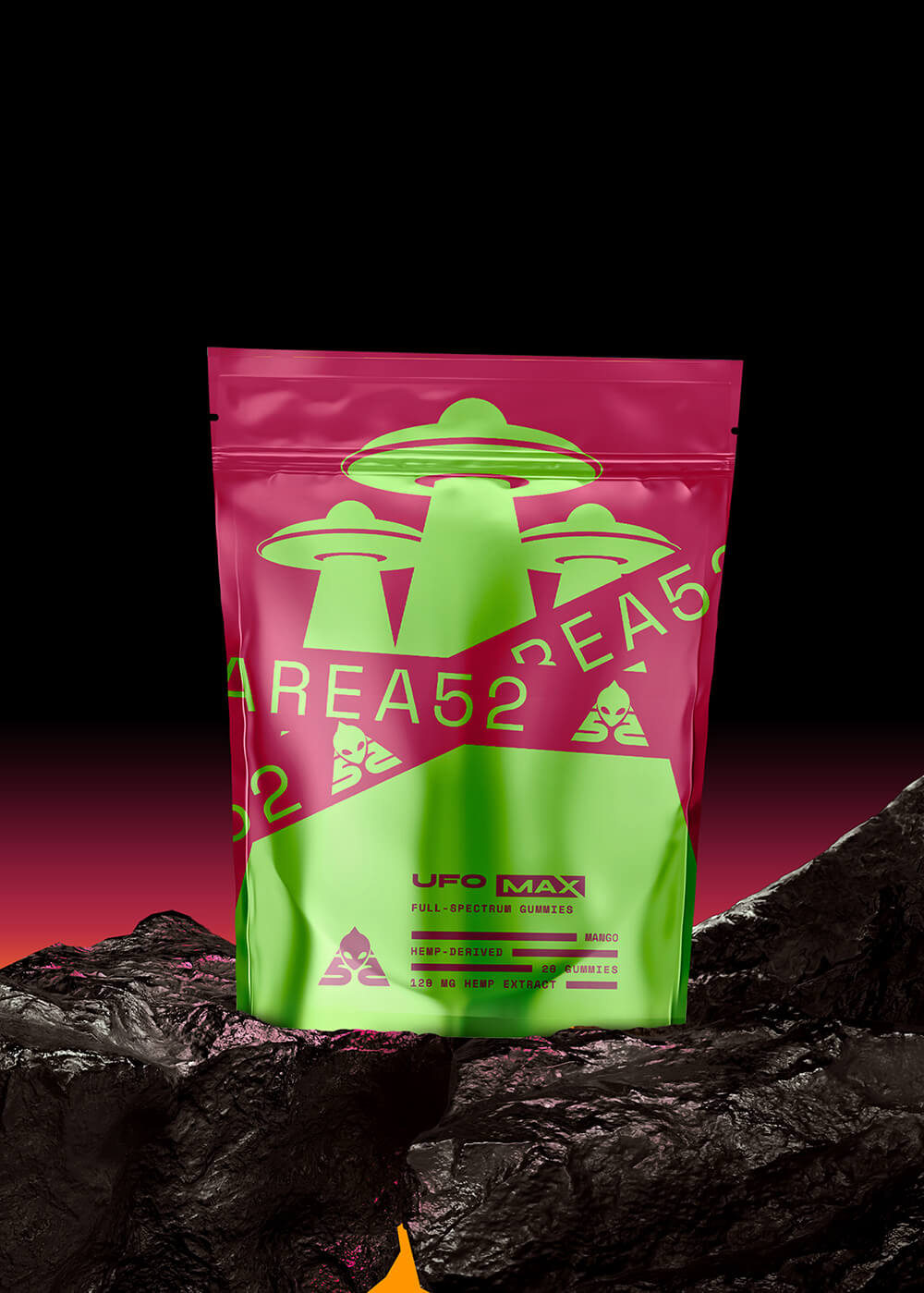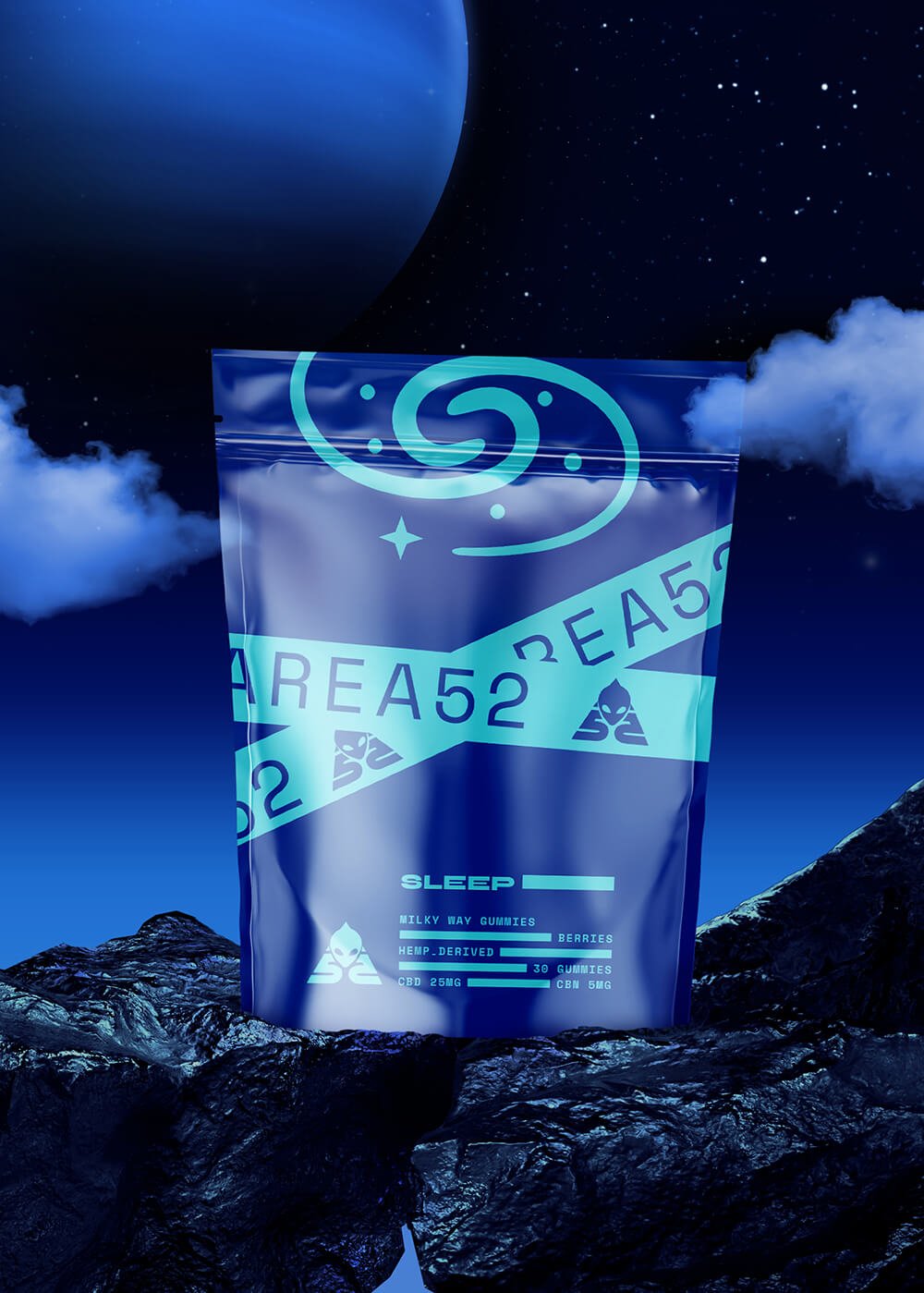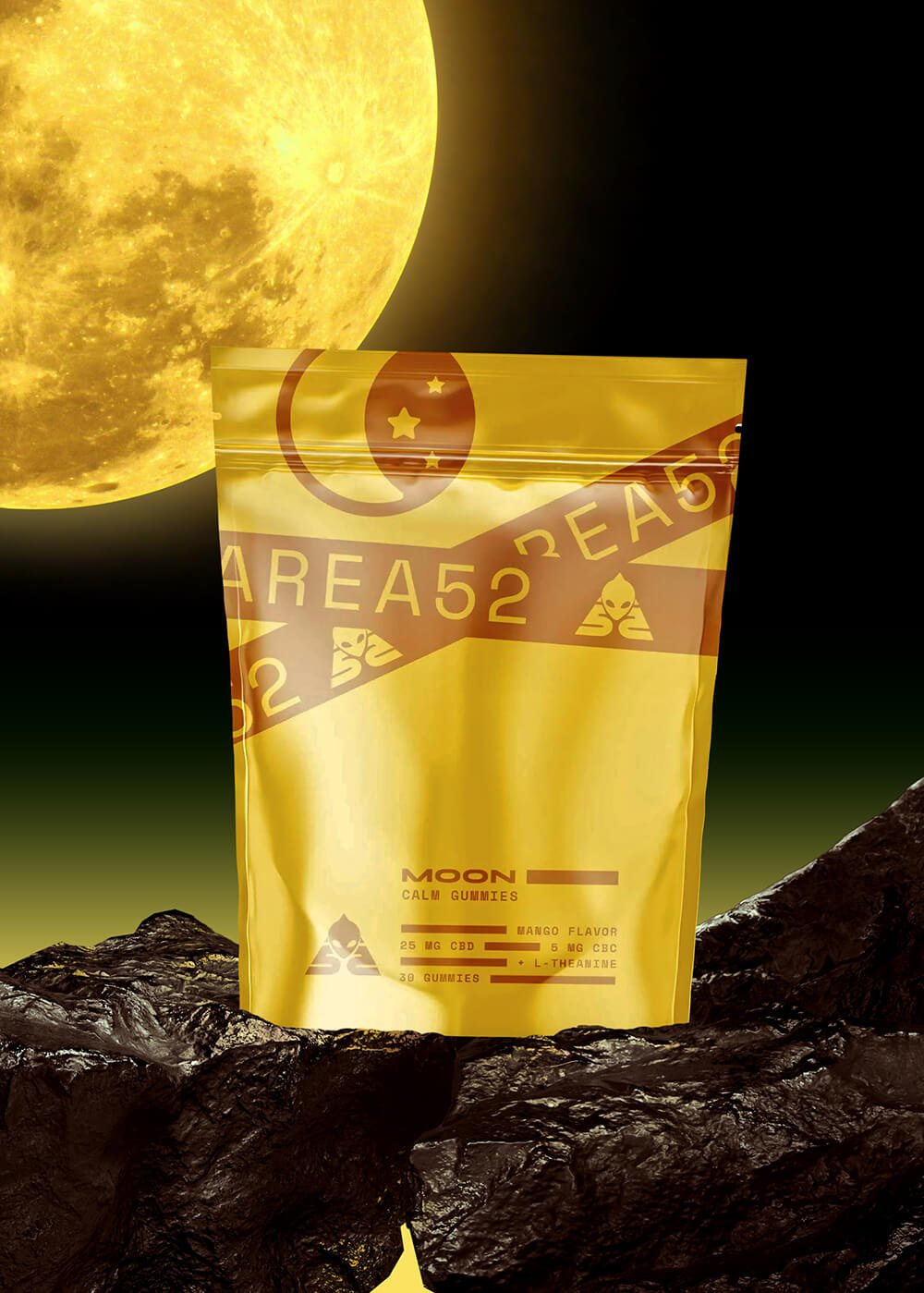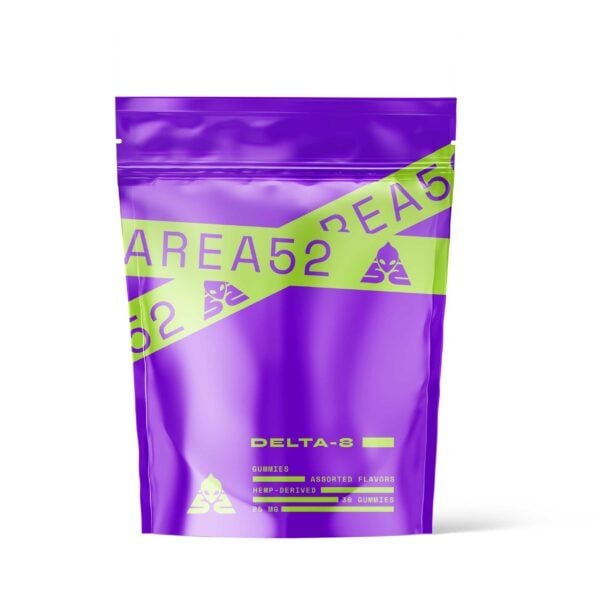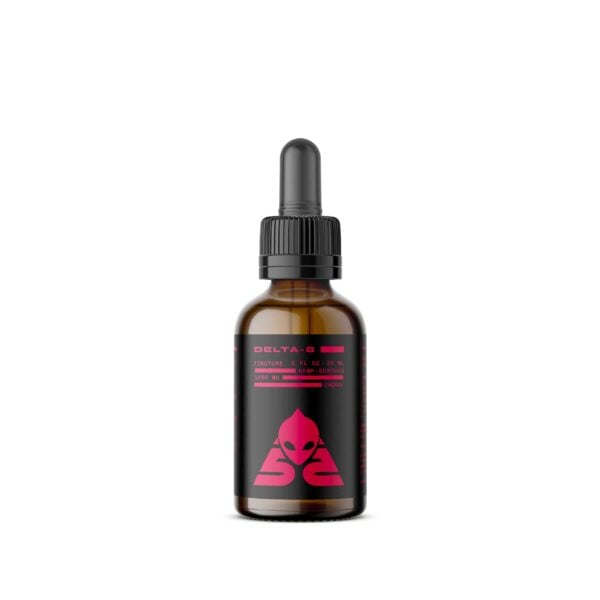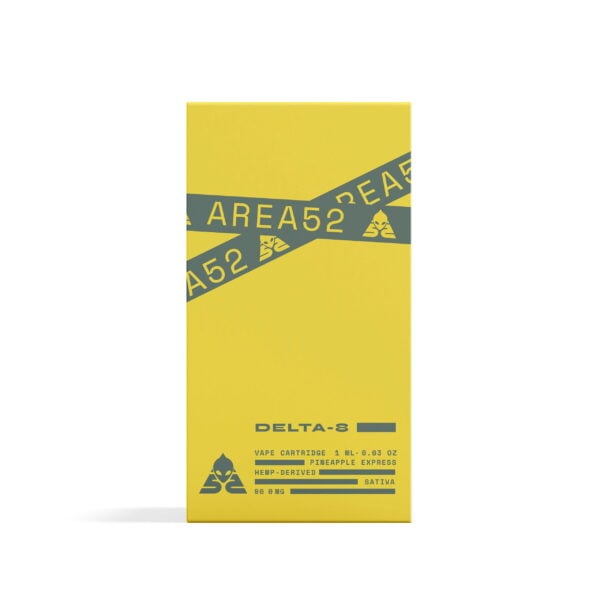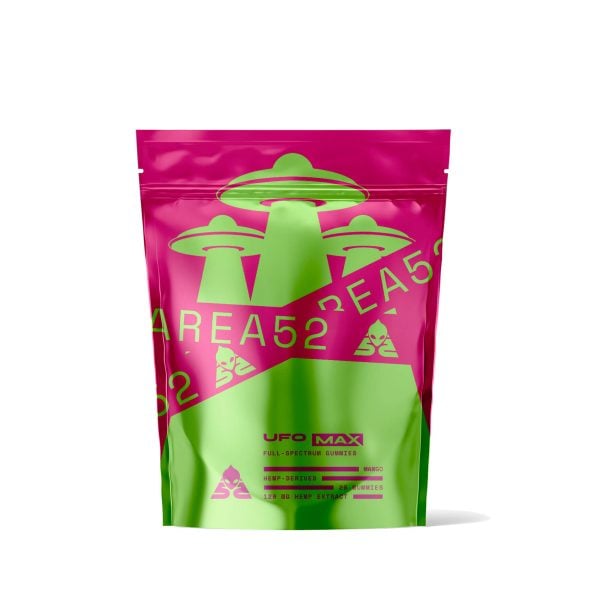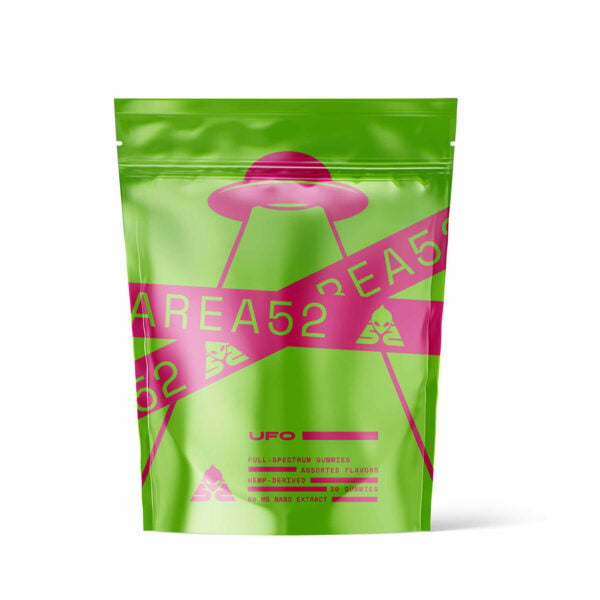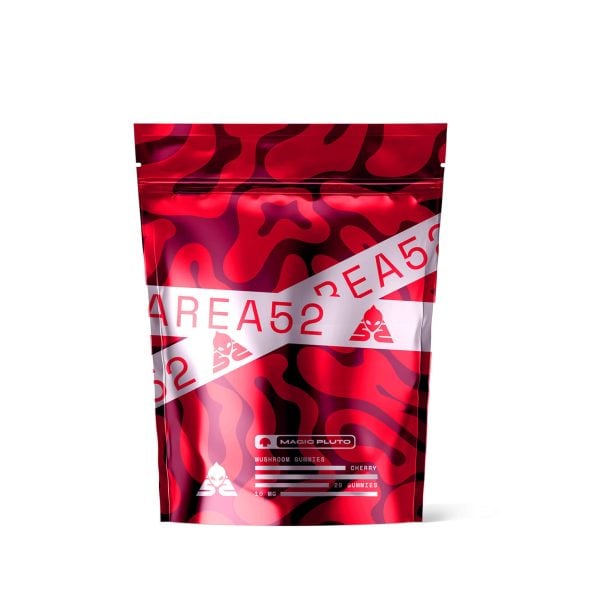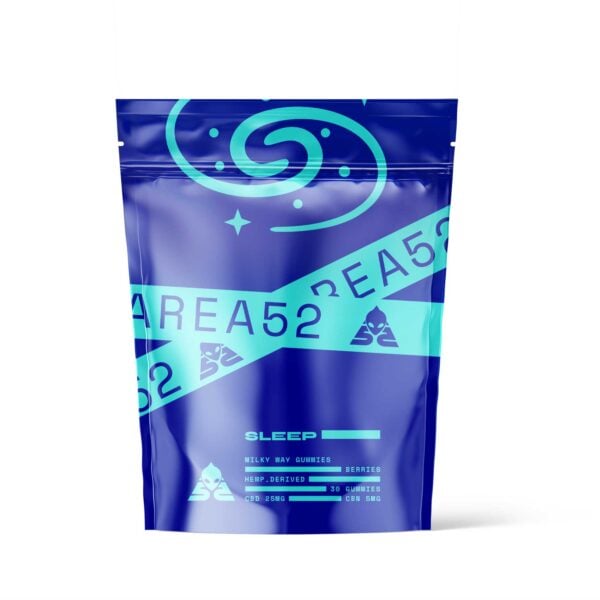Delta 8 THC in Nebraska: Is It Legal & Where to Buy in 2025?
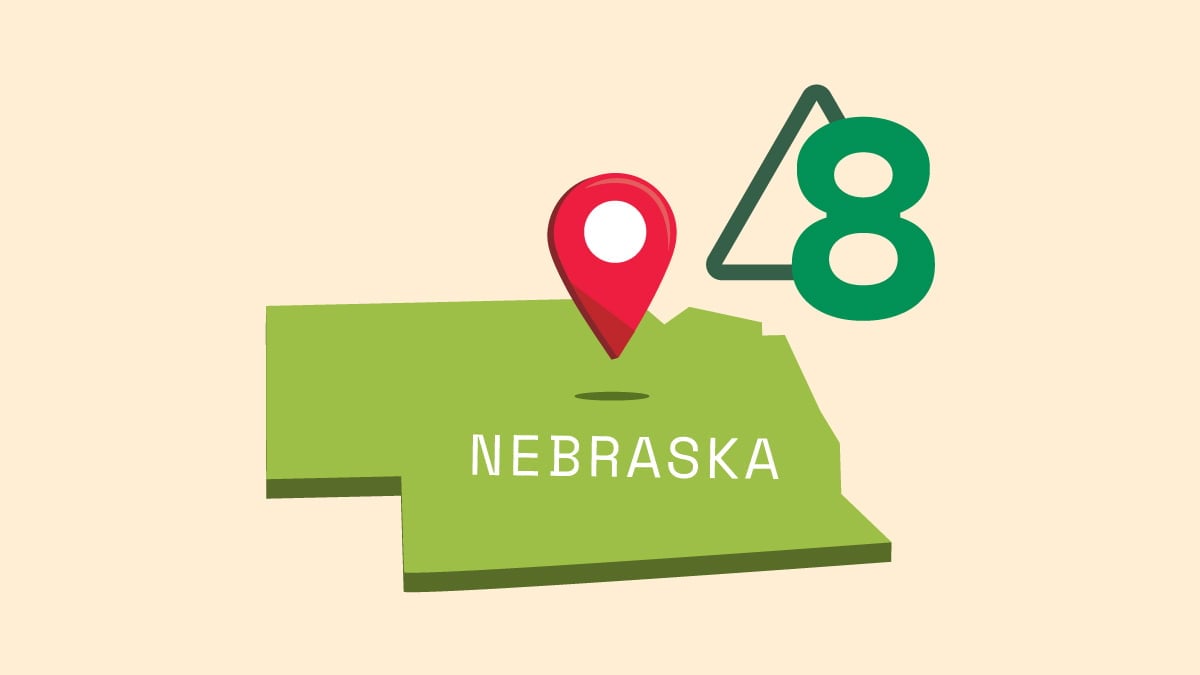
It was not long ago that all cannabis products were illegal and listed as Schedule I drugs. However, it all changed with introducing the 2018 Farm Bill — at least for most people.
While some states are more permissive, others still keep strict regulations even before the historic 2018 Farm Bill. Nebraska is notorious for being one of the most resistant to this change in regulation.
In this article, we’ll cover, in detail, the laws regulating delta 8, delta 9, and delta 10 THC in the state of Nebraska. We’ll cover the differences between delta 8 and delta 9 THC and let you know how to use and where to buy delta 8 THC.
Is Delta 8 Legal in Nebraska?
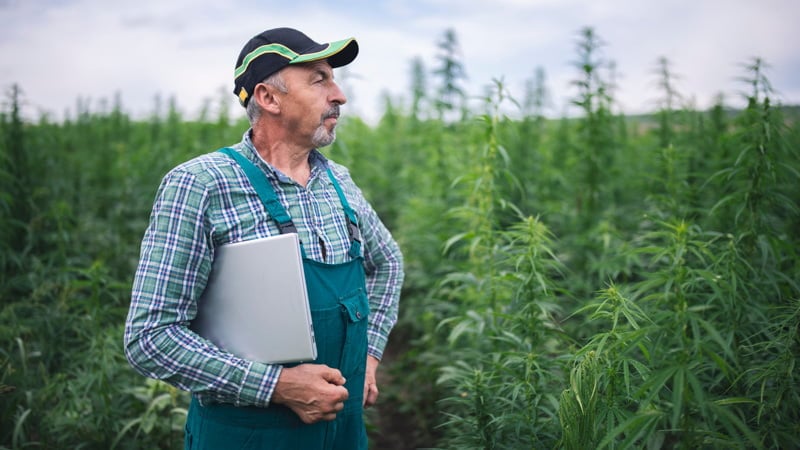
Short answer…yes. Delta 8 derived from hemp plants is legal under Nebraska law. However, state regulators see intoxicating hemp derived THC products as controlled substances, especially since the delta 8 we see on the market is synthesized from hemp CBD using chemical processes.
The laws surrounding psychoactive hemp derived cannabinoids like delta 8 THC are quite ambiguous but, under the 2018 Farm Bill, these compounds are technically legal under federal law.
This bill removed hemp (containing less than 0.3% THC) and hemp products from the Controlled Substances Act, meaning that it is no longer an illegal Schedule I drug. This allowed us to use all parts of the hemp plant — from its flowers to its cannabinoids, isomers, and acids, among others — and freely purchase hemp derived products such as hemp CBD oils, tinctures, and gummies, so long as its THC content is within the legal limit.
However, the 2018 Farm Bill also created a loophole that allowed the sale and consumption of intoxicating yet legal products containing psychoactive cannabinoids sourced from hemp, such as delta 8 and delta 10.
Many states aligned their hemp laws with the federal government, and regulators in Nebraska have also chosen to adopt the same language used on the federal level when they passed the Nebraska Hemp Farming Act — making delta 8 THC products that have been derived from hemp legal (pending they contain no more than 0.3% delta 9 THC).
However, the widespread availability of delta 8 products in Nebraska is raising public health and safety concerns, especially since these are easily accessible in the illegal marketplace and hurting innocent people.
Several bills have already been heard in the Judiciary Committee and prioritized by Senator Storm to either ban or regulate psychoactive hemp products in Nebraska.
Last March 2025, Nebraska Attorney General Mike Hilgers announced that his office will be intensifying its efforts statewide in cracking down against these harmful and unlawful products that drain the state’s law enforcement resources. He also went on to say that the law won’t spare even those who operate in Nebraska’s largest city, and that Omaha stores should also expect cease and desist letters relating to these products.
The Douglas County Sheriff’s Office did join Attorney General Hilgers in investigating the hemp products purchased from stores owned by different companies, many of which also have tobacco licenses. The law enforcement officers tested the products’ THC concentrations and found that some of these products are mislabeled and even incorrectly identified their contents.
The Nebraska Attorney General’s Office then sent cease and desist letters to over a hundred Nebraska retailers selling harmful, synthetic THC products.
The letters demanded that signed document indicating the store’s Assurance of Voluntary Compliance be sent back to his office to avoid criminal charges for selling dangerous products masquerading as hemp.
Failure to return a signed settlement by the store investigated will initiate litigation. The office will then actively seek penalties, criminal prosecution, and fees once litigation ensues.
For now, delta 8 remains legal in Nebraska, but the state is moving toward prohibition and stricter regulations. If a bill passes that bans, restricts, or regulates delta 8 and similar cannabinoids, their legal status can change at any time.
Where to Buy Delta 8 THC In Nebraska?
The best place to order delta 7, delta 8, and delta 10 THC is online from a trusted vendor. Online shops are able to offer better prices (less overhead), more convenience (you don’t have to leave your home), greater product selection, fresher product stock (direct from manufacturer), and enable users to check third-party testing.
Most delta 8 THC users in Nebraska order online and have it shipped. This practice is currently legal within the state.
The benefits of ordering delta 8 THC online:
- Online shops have better pricing and seasonal discounts
- When you buy online you can read customer reviews & third-party tests before you buy
- Ordering online is easier and more convenient
- Online shops have a greater selection of products
- Products left on store shelves degrade more quickly
Shop For the Best Delta 8 THC Products in Nebraska
Do I Need a Medical Card to Order Delta 8 THC in Nebraska?
Considering delta 8 THC is legal in Nebraska with or without a medical card. Currently, there is no established medical program in the state.
What’s the Difference Between Delta 8 THC & Delta 9 THC?
Delta 9 THC is most commonly known as just THC. It’s one of the most famous cannabinoids since it is the main compound in cannabis that gets you high. Unfortunately, delta 9 THC is illegal at the federal level, with just a few states allowing it.
Delta 8 THC is found in minimal amounts in cannabis compared to delta 9. It produces similar but milder effects than delta 9 THC. However, it’s approximately half as potent.
These two compounds are isomers, meaning that their chemical structures are very similar. The difference is the location of a single, double bond — everything else is identical. Still, these small variances are responsible for their different effects and legal classification.
Although some would consider delta 8 THC’s reduced potency as a disadvantage, delta 8 has advantages over delta 9.
The advantages of delta 8 THC include:
- Less undesired side effects, especially anxiety
- Greater shelf-life
- Regaining your tolerance to delta 8 THC is easier and faster
- Due to its lower potency, it’s less likely that you use too much delta 8 by mistake
A few disadvantages of delta 8 THC include:
- Less potency, roughly half as much, meaning that you need twice as much delta 8 to get the same effects high-wise (which may be a plus for some people)
- You develop tolerance to delta 8 faster
- Given that it’s only found in trace amounts in cannabis, it’s considerably more expensive
Is Delta 8 THC Safe?
Yes! As previously mentioned, due to delta 8 THC having around half the potency of delta 9 THC, you’re less likely to use too much accidentally, leading to fewer undesired side effects, like anxiousness and paranoia.
While side effects are possible, there has never been a reported death or overdose from delta 8 THC. Taking too much may make you feel nauseous, dizzy, or couch-locked. Some people wake up groggy the day after using high doses of delta 8 THC.
Is Delta 8 THC Synthetic?
The term synthetic is used to describe human-made products. For example, delta 8 THC isn’t considered synthetic since cannabis plants naturally produce it.
When cannabis or hemp are exposed to oxygen, heat, or UV light, chemical reactions that turn delta 9 into delta 8 THC occur. However, it can only be found in trace amounts, around 1% or less.
Due to this low concentration, commercial products convert CBD to delta 8 THC through chemical reactions. First, highly refined CBD is mixed with hydrochloric acid and toluene, and the mixture is refluxed for 20+ hours.
This process leads to confusion as some people argue it might be considered synthetic since it’s produced in a lab – however, as previously mentioned, it can be found in nature, just not in amounts great enough to be commercially viable.
In 2020, the federal government further ensured the legality of delta 8 THC by stating that “All synthetically derived tetrahydrocannabinol remain Schedule I controlled substances.” This clearly distinguished delta 8 and other synthetic THC versions, like ‘spice.’
Delta 8 Vapes & the PACT Act
In 2009, the Prevent All Cigarette Trafficking (PACT) Act was passed as an amendment to the 1949 Jenkins Act. Its main goal was to prevent the online sales of untaxed cigarettes.
It prohibited the US Postal Service from shipping cigarettes and smokeless tobacco. In addition, it required all online sellers to register with the Bureau of Alcohol, Tobacco, Firearms, Explosives (ATF) and with the tax administrators of each state.
Additionally, the PACT Act:
- Mandated that online sellers collect state and local taxes
- Imposed strict rules for tax collection, payment, and reporting to individual states and the federal government
- Created standards for private carriers shipping cigarettes and smokeless tobacco to both residencies and businesses
More recently, in December 2020, another act was passed. The Preventing Online Sales of E-Cigarettes to Children Act, also known as the ‘vape mail ban,’ was added to the PACT Act.
Essentially, this bill changed the definition of ‘cigarettes.’ It now includes all vaping products, from devices to e-liquids, whether or not they contain nicotine — including delta 8 THC vaping cartridges.
Additionally, all Electronic Nicotine Delivery Systems (ENDS) are banned from being delivered by the US Postal Service under this new act.
Here are other important rules imposed by the Preventing Online Sales of E-Cigarettes to Children Act:
- Sellers must verify the customer’s age;
- Only private shipping companies can deliver these products;
- Upon delivery, there must be an adult with ID to receive the products;
- Shipping packages must be labeled to signal they contain tobacco products;
- Companies must register with the Bureau of Alcohol, Tobacco, Firearms, and Explosives (ATF), the US Attorney General, and with state and local tax administrators wherever they conduct business;
- Companies must comply with local and state tax requirements and add tax stamps to all products sold;
- Companies should send a monthly list detailing all transactions to state tax administrators.
What Does This Mean to Vapers?
This bill completely changes the landscape of vaping products’ sales and deliveries. The vaping industry will have to adapt quickly to this new reality, and a lot of smaller businesses might not survive.
Now, you’ll have to fill out an age verification form at the time of checkout. This is done by uploading documents proving you’re above the age of 21. It also means shipping times could be longer than usual and may be more expensive than they used to be. The US Postal Service and many other major shipping companies will no longer ship vape products within the US.
If you order vaping products from a website that doesn’t verify your age, you should avoid buying from them – firstly, because it’s illegal and, secondly, because they’re probably cutting corners and conducting other unethical practices.
How to Use Delta 8 THC?
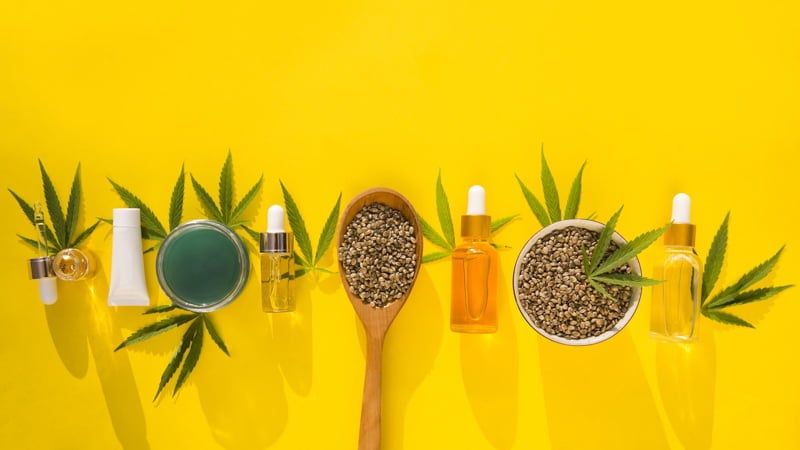 When it comes to delta 8 THC, there’s something for everyone. You can find delta 8 products in the same various forms as CBD products. Here are three of the best options:
When it comes to delta 8 THC, there’s something for everyone. You can find delta 8 products in the same various forms as CBD products. Here are three of the best options:
1. Delta 8 THC Vape Cartridges
If you’ve been using other types of vapes before, delta 8 THC vapes work just the same. If not, nothing to worry about — take a deep breath and hold the vapor for as long as you want — the longer you hold, the greater the absorption.
To vape delta 8, you can get pre-made disposable vape pens or cartridges to use with your reusable pen.
It might be hard to find delta 8 THC vape cartridges for some common vape pen models, but you can find standard 510 threading that’s become the universal threading for vape products in the US.
Vaping has many advantages when compared to other methods, including how convenient and discreet it is. Moreover, the effects show up much faster — it only takes about 10 minutes, while ingestion methods take about 30 minutes.
2. Delta 8 THC Gummies
Gummies’ greatest advantage is the easiness of controlling your delta 8 THC dosage. You know exactly how much is in each gummy and can have as many as you need to reach your ideal dosage – they’re also super yummy!
The effects take longer to show up than with vaping since your digestive system needs to process them before the delta 8 THC enters your bloodstream – but the effects last longer and spread throughout your whole body.
3. Delta 8 THC Tinctures
Tinctures are super versatile, and you can find them in different flavors. You can apply a few drops sublingually and hold them for about a minute before swallowing or add them to food or drinks to make your own personalized edibles.
Due to other ingredients in tinctures’ formulations, they have great bioavailability. This means that your body can efficiently absorb them — especially if you apply them under your tongue; the effects are quite fast to set on (although not as fast as vaping).
Is Marijuana (Delta 9 THC) Legal In Nebraska?
Nebraska has historically been tough towards marijuana and was resistant to changing marijuana laws as neighboring states moved to legalize it. However, in November 2024, voters voted in favor of legalizing medical marijuana, and the state’s Medical Cannabis Commission is set to finalize laws and regulations in July 2025.
Recreational marijuana is still illegal here, but state regulators moved to decriminalize the substance. This means you’ll receive a fine, and your product will be confiscated — but it’s unlikely that users will go to jail for possessing marijuana.
Related: Where is marijuana legal in the United States?
Is Delta 10 THC Legal in Nebraska?
Delta 10 THC is legal in Nebraska under the same pretense as delta 8 THC (no more than 0.3% delta 9 content and hemp-derived only).
What Is the Future of Delta 8 THC in Nebraska?
Medical marijuana is now legal in Nebraska, but while all the US states are moving towards full legalization of marijuana, Nebraska is likely to be one of the last states to accept this change. From the very beginning, Nebraska regulators have pushed back on changes to the cannabis legislature and have even since signed new, more restrictive laws.
Despite its hard stance against marijuana, delta 8 THC remains legal in the state under a few conditions — it must be made from hemp, and the final product must contain no more than 0.3% delta 9 THC by weight.
Stay informed though, and always check your state’s local laws. Lawmakers are ramping up their fight against hemp-derived psychoactive cannabinoids, and their legality can change anytime.
FAQs on Delta 8 and Other Cannabinoids in Nebraska
This section lists the legality of delta 8 and other cannabinoids in Nebraska.
1. Can You Get Delta-8 in Nebraska?
For now, you can get delta 8 in Nebraska. But lawmakers are actively working to ban or regulate intoxicating hemp derivatives, so their legality can change at any time.
2. Is Delta 9 Illegal in Nebraska?
Marijuana for recreational use remains illegal in the state but is available for registered medical cannabis patients only. Hemp products with delta 9 are legal, but their THC levels must not exceed 0.3%.
3. Is Delta 10 Illegal in Nebraska?
Delta 10 is legal in Nebraska. But because it’s covered by the same laws that apply to delta 8, which is under scrutiny right now, its legality can also change anytime or face future restrictions.
4. Is CBD Legal in Nebraska?
Hemp-derived CBD is legal in Nebraska and available to residents, but marijuana-derived CBD is only allowed for medical marijuana patients.
5. Is THCA Flower Legal in Nebraska?
THCA products are legal in Nebraska, provided they contain no more than 0.3% THC.
